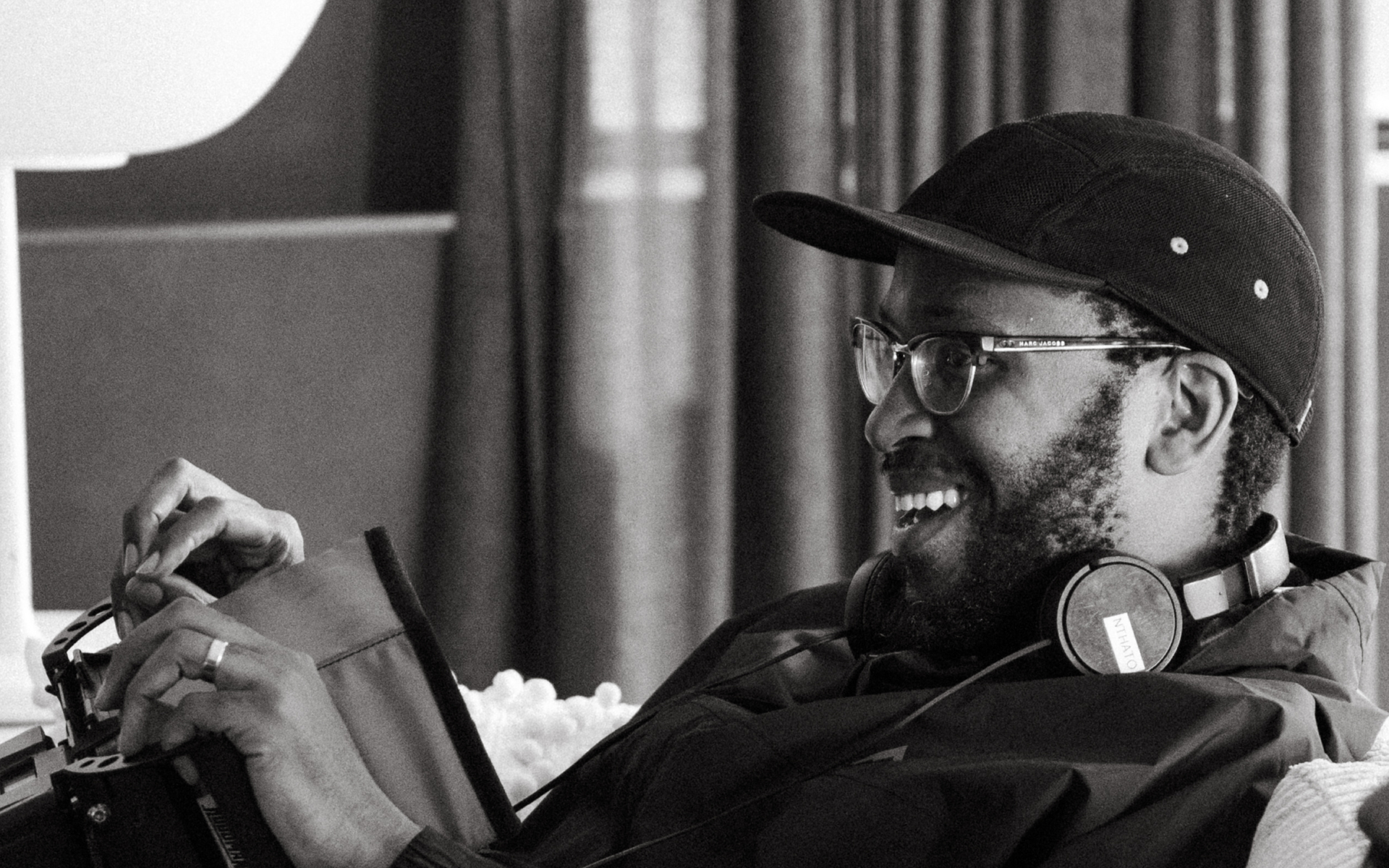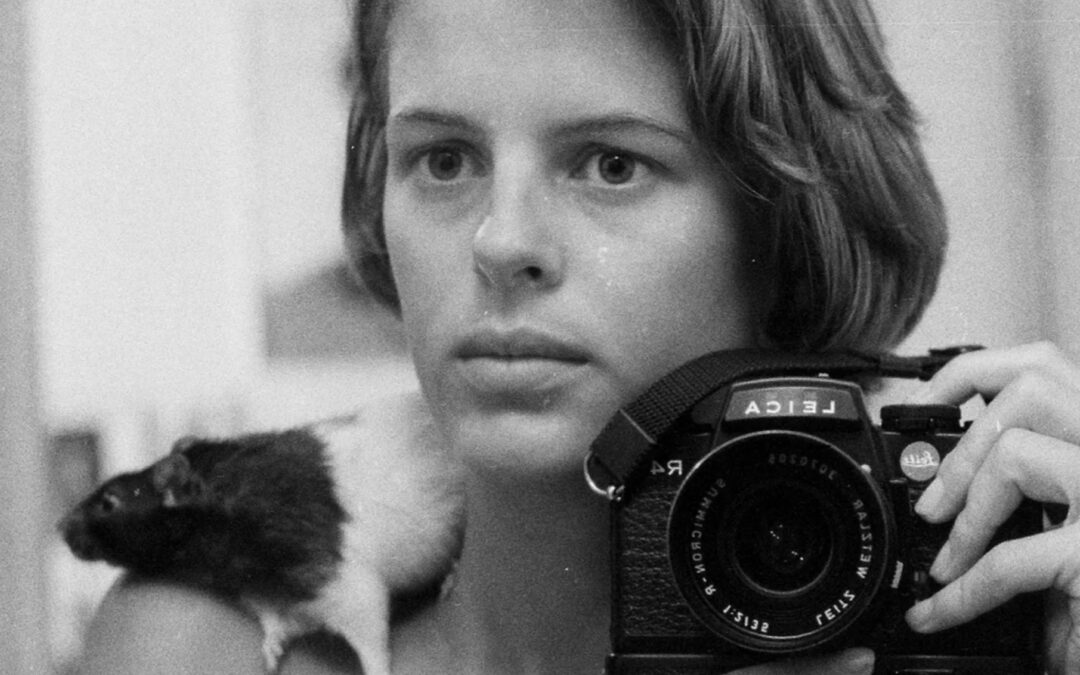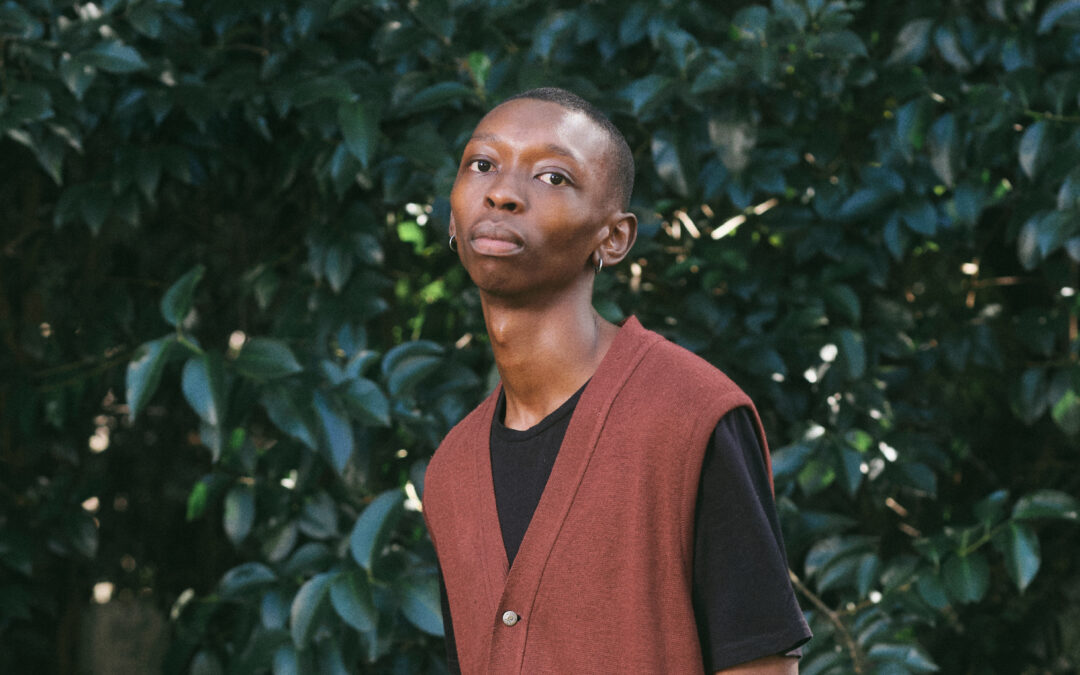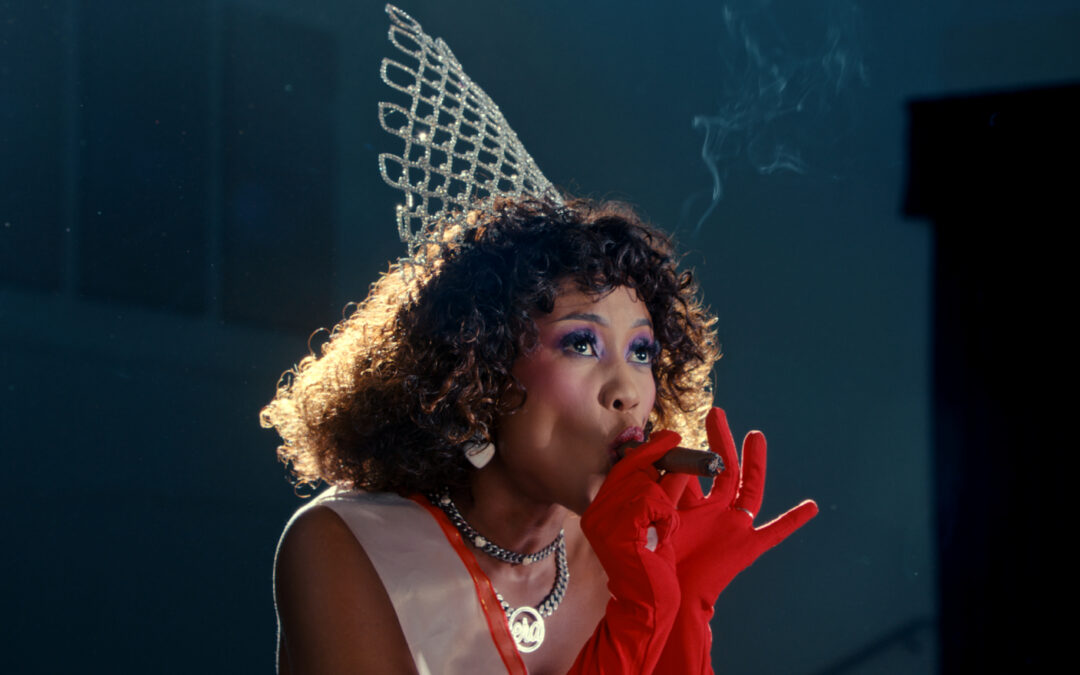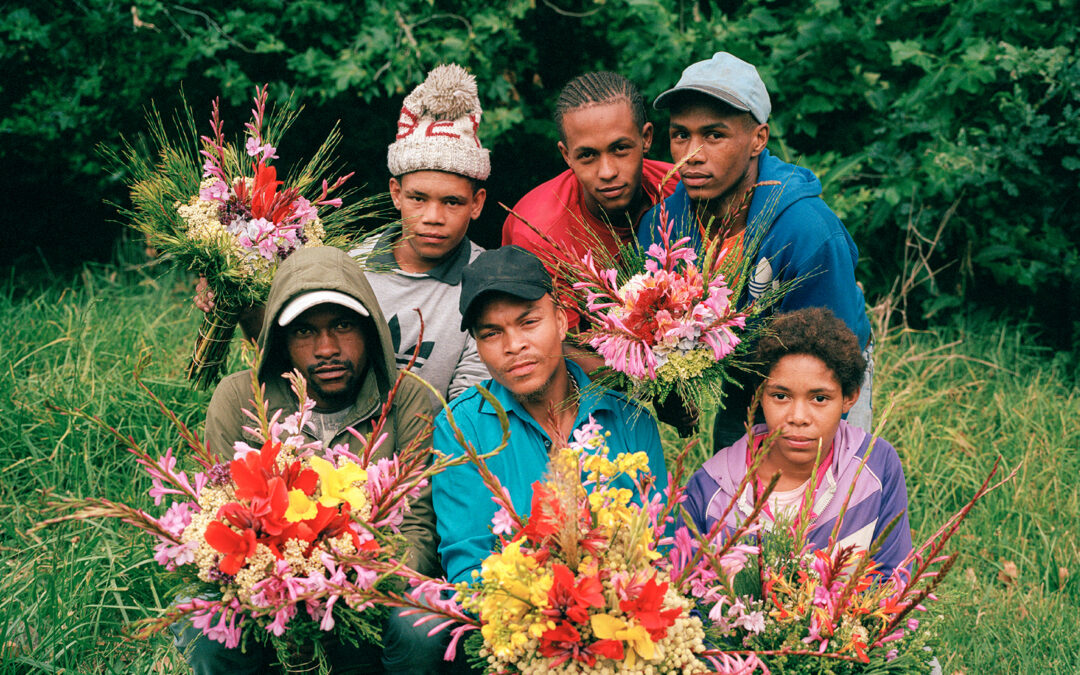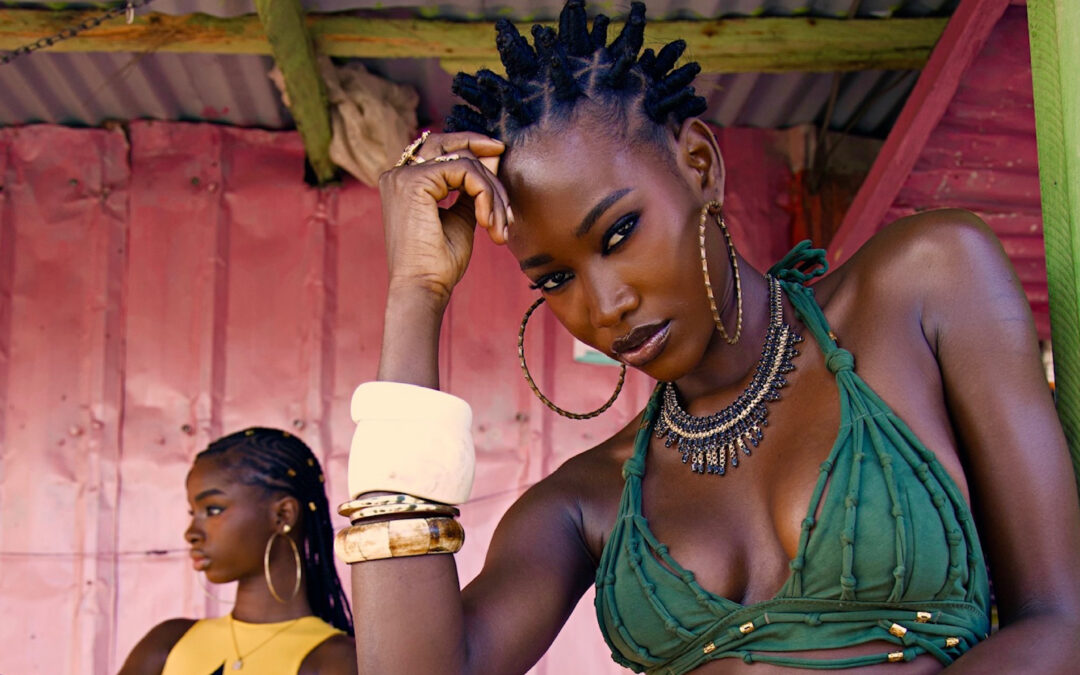Nthato Mokgata has always told stories in motion, and he has a chameleonic ability to tell each one, through each medium, with startling clarity. In his latest incarnation, as a film director stepping into commercial advertising, it is a natural arc to a lifetime spent wholly committed to creative expression. As Spoek Mathambo, a sonic identity carved out of the energetic ferment of the 2010s, Nthato emerged as a figure who rewired the possibilities of Pan African electronic music and captured the restless pulse of South African youth culture, at a time when we were just getting out from under the weight of the post-apartheid hangover and finding new ways to define ourselves.
As Nthato explains, he sees the past few decades of cultural production as an existential responsibility: for South Africans to inscribe their own creative imprints, to reflect themselves not as exports for external validation, but as authors of a shared imagination. It’s an ambitious challenge — one he has consistently risen to and at this juncture, stepping into the realm of commercial advertising will be no exception.
Multidisciplinary in the truest sense of the word — spanning documentary, literature, animation and visual art — Nthato is and remains a restless storyteller, forever seeking the next medium capable of holding his ideas. It’s in this spirit that commercial advertising offers both challenge and possibility: a democratic form of art, in which messaging for rarefied circles is totally obsolete and the resonances of one’s work is intended for millions. In a country as diverse and dazzling as ours, advertising dissolves our sentiments around ‘high’ and ‘low’ culture – holding lofty and noble potentials that reach across language, class and geography.
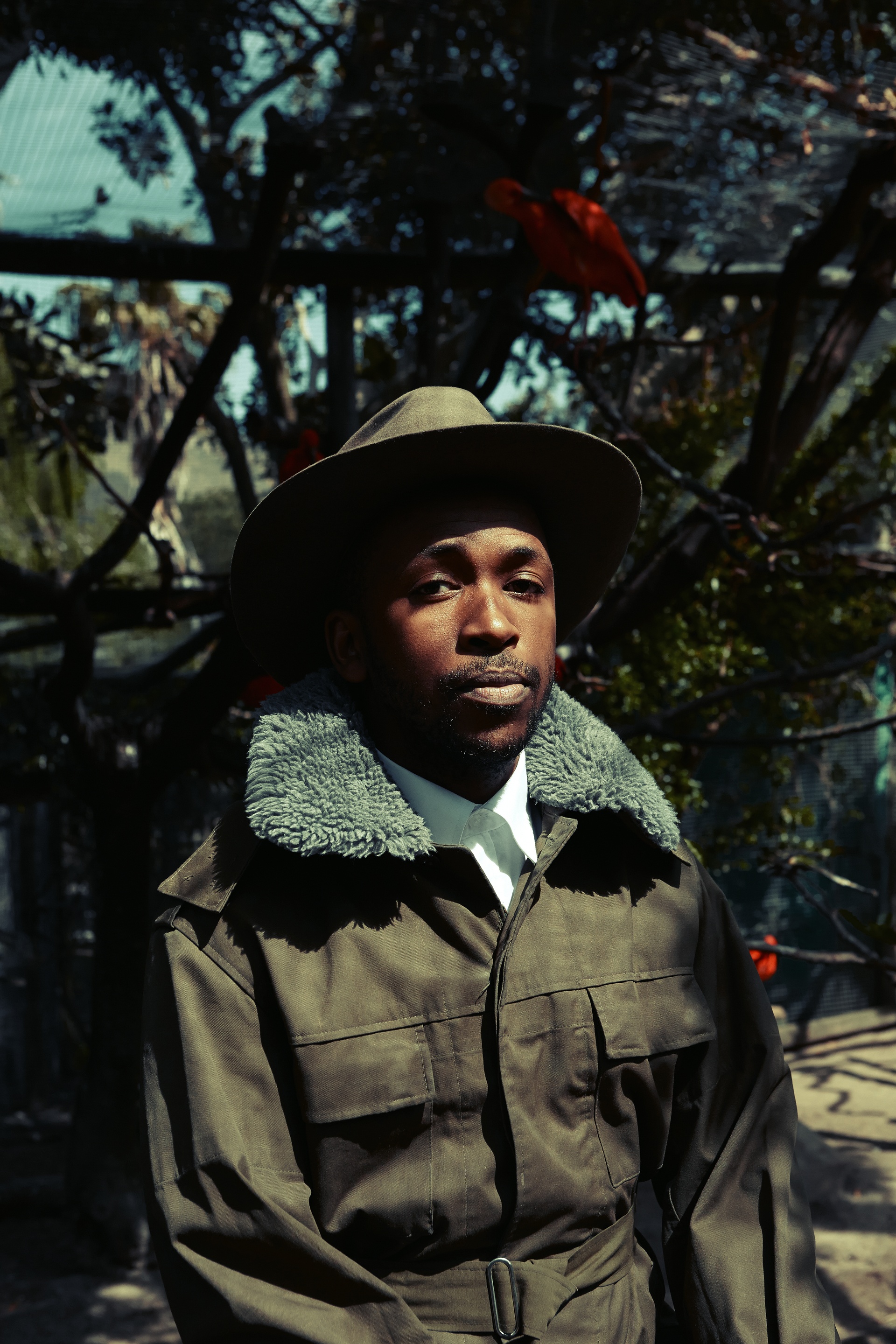
Portrait of Nthato Mokgata by Kent Andreasen
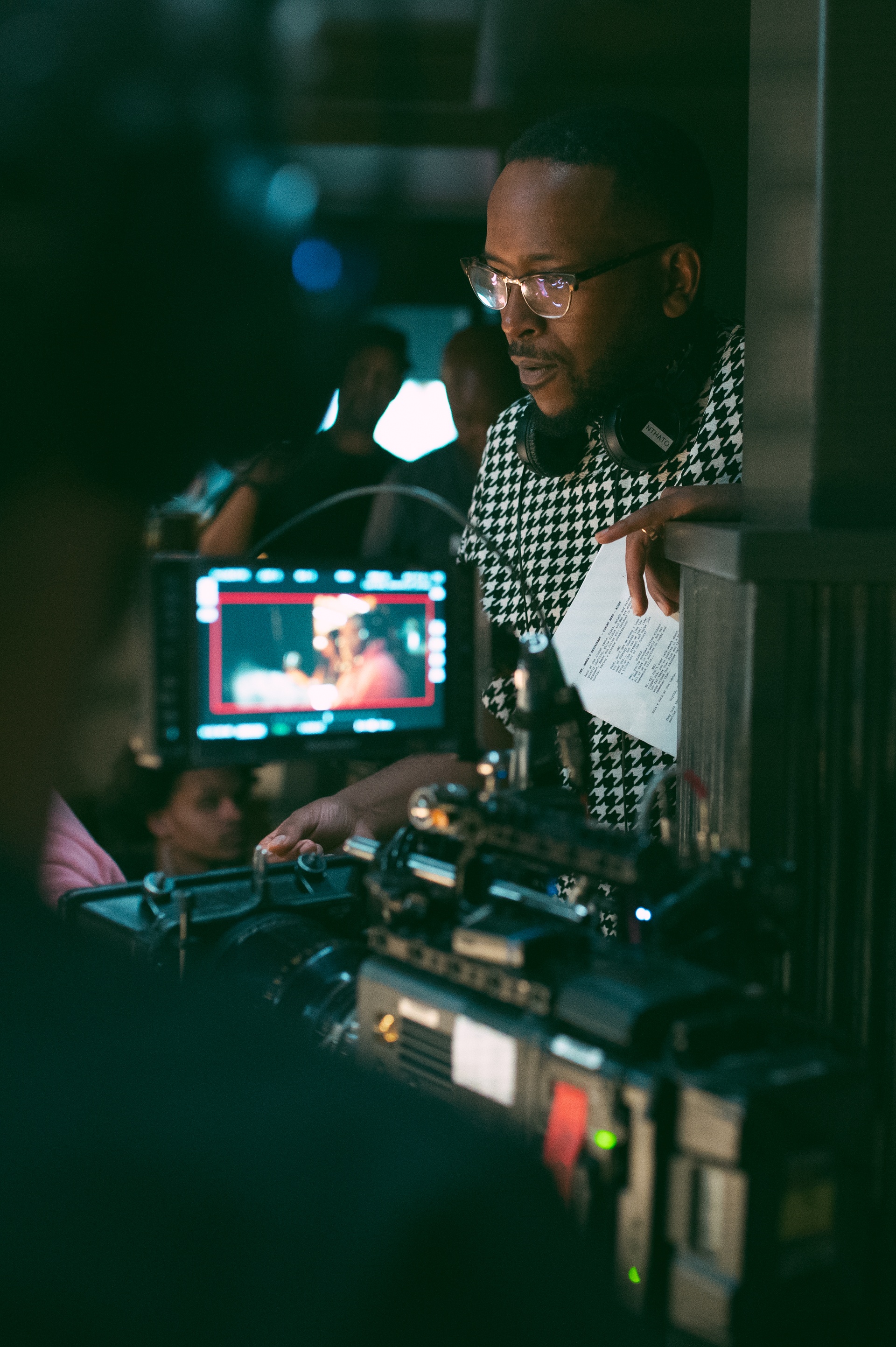
‘Scam Called Love’ BTS photographed by Studio LaGrange
In South Africa, our commercial space has long carried the weight of humour, satire and social commentary and in stepping into this arena, Nthato intends to inject his own imagination and aesthetic into that cultural bloodstream. Well, more than he already has; whether through the raw pulse of Future Sounds of Mzansi, the afrofuturist animation of Surf Sangoma, the tender rhythms of his debut novel Ghost in the Drum, or the irreverent sonic experiments he shared as Spoek Mathambo, among his many other works over the decades.
In our conversation, Nthato points out that his creative beginning is always writing. He locates himself first as a writer, with world-building emerging naturally as a way of translating text into other forms; and his movement into music, film, animation or visual art has always been a means to finding new containers for his imagination. “Going to study design and animation, as a writer, was to ensure that I have the skills myself,” he explains. “I have always been looking for people who could help me take ideas out of text and into different mediums. It’s not specifically about keeping things visual, but about bringing the concepts more to life, bringing the ideas more to life, bringing the questions more to life.”
Having already proven his command of long form — from award-winning documentaries to novels and feature films — the turn to commercials is less a stepping stone than a deliberate return to brevity. In short form, Nthato notes the chance to distil big ideas into sharp, memorable moments with immediacy and scale, explaining that, “a big part of my excitement of going into commercials now, is the capacity to work with some of the greatest crews in the world, and often — as opposed to having to wait on those four-year films, or six-year animation cycles, or even a book by myself which was quite an extended process. With commercials, the speed and the scale just feel liberating.”
Nthato is acutely aware that in South Africa, advertising is no trivial backdrop. I point to the extensive tradition we have of commercials provoking a cultural mood — from the sharp satire of Nando’s campaigns to iconic beer ads and cellphone spots that became shorthand for whole generations. Just this weekend, I found myself reminiscing with a friend over the Vodacom meerkat; how a small, silly character could become a national touchstone and still occupy real estate in my memory is a hilarious thing in hindsight.
It’s one of the few industries that has built, almost inadvertently, a parallel archive of our cultural life, despite the commercial, economic goals that drive it.“A large chunk of our creative talent goes into commercials,” Nthato points out. “People that in other countries would be making television or films, are pressed into commercials. And so that means that…the lack of humor, the lack of really innovative creativity, the lack of cultural cool, the lack of energy in the commercials from around the world compared to South Africa is really like night and day. I lived in Sweden for ten years, and you wouldn’t believe the difference. A huge aspect of it is that we have a wide range of creatives that maybe in other countries wouldn’t have necessarily gone into commercials, but in Africa – this is their bread and butter.”
Nthato Mokgata’s Showreel
At the core of Nthato’s reflections is a philosophy of imagination as responsibility. “For me it’s really about creating visual streams and modes where big ideas can live,” he explains. “In South Africa, what we’re pushing for as a generation is the chance to see the things we love and consume from around the world — but to see them integrated and reimagined in a South African context. To imagine more within ourselves. It gets tricky because so much of what we take in comes from outside, but that’s why I believe our generational responsibility is to create a voice for South African existential humanity.”
Nthato shares that he recognises this duty more clearly, that “when you’re 25, you’re in that process of making yourself — stepping outside of your parents’ influence — and then you start to just see our collective imagination exploding. What’s happening in South Africa is really exciting. And now that I’ve just hit 40, to see that spark in people’s eyes and minds — that’s what I mean when I talk about creative responsibility. Because it means they’ll do the same for the next generation: igniting the South African imagination that exists within this context. It’s such a vibrant, crazy world. There are scary tensions, yes, but there’s also so much life and diversity.”
Nthato resists the idea that responsibility must be solemn. His creative instinct continually returns to humour, levity and play as the most honest expressions of culture. Now, represented by award-winning space Romance Films — known for its cinematic, artful approach to commercial storytelling — Nthato has been working out what his own voice in this field might be. As the team at Romance put it, “At Romance, we’ve always believed that the future of compelling commercial work lies in voices that challenge the status quo, and that’s exactly what Nthato brings. His ability to draw from such a rich creative spectrum, from music to film to literature, means he will bring a fresh lens to every brief. And in a landscape that often leans on formulas, his instinct to experiment, to subvert, to reimagine, is exactly what brands need right now. We’re thrilled to be part of the next chapter in his evolution, and excited for what that means for the work.”
“With commercials, I hadn’t really figured out what that voice would be,” Nthato admits, “and I know instinctually what my tastes are, what I relate to, but I had really struggled for a long time to know how I would speak in that field. I’m very close with a lot of commercial directors. I would say in a sense that Terence Neale has been very much a mentor — whether directly or indirectly — in my filmmaking. To learn from him the intersection between youth culture that I’ve always been interested in, reaching aesthetic heights, being brave aesthetically, as well as a levity, a real sense of humor that isn’t on the nose, but can be weird, these are all things I love and consider in my process, and that’s what I’m aiming for.”
This emphasis on humour runs deep, and Nthato points out; humour is intrinsic to the South African psyche and spirit. “Working on our rom-com film ‘A Scam Called Love’ gave me that sense of confidence — how to create things that are emotive,” he reflects. “There’s always space for the humanist approach and more honesty. Humour is also an honest expression. Humour is our great unofficial South African language. We thrive in survival on humour. In all our differences, it’s our single shared language, and it’s a comedy lover’s real playground. I think because there are so many different cultures and languages, humour takes on all these unique gradations.”
In this light, Nthato’s step into commercial directing is a continuation of his broader practice: writing, music, film, animation, literature — all different attempts at the same pursuit, to translate imagination into forms that can be shared. Commercials offer Nthato a new immediacy, and our commercial space will undoubtedly be a more generative space for it. As Nthato simply says, “it excites me to be able to make memorable pieces, to make some really exciting, classic pieces.”
Written by Holly Beaton
For more news, visit the Connect Everything Collective homepage www.ceconline.co.za

